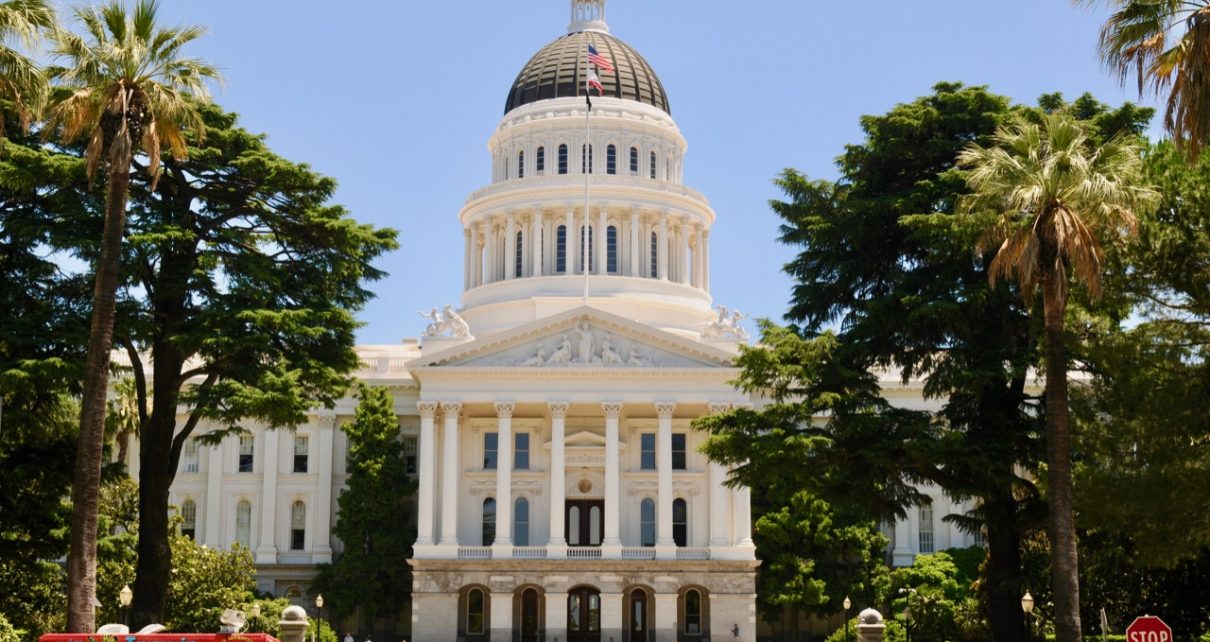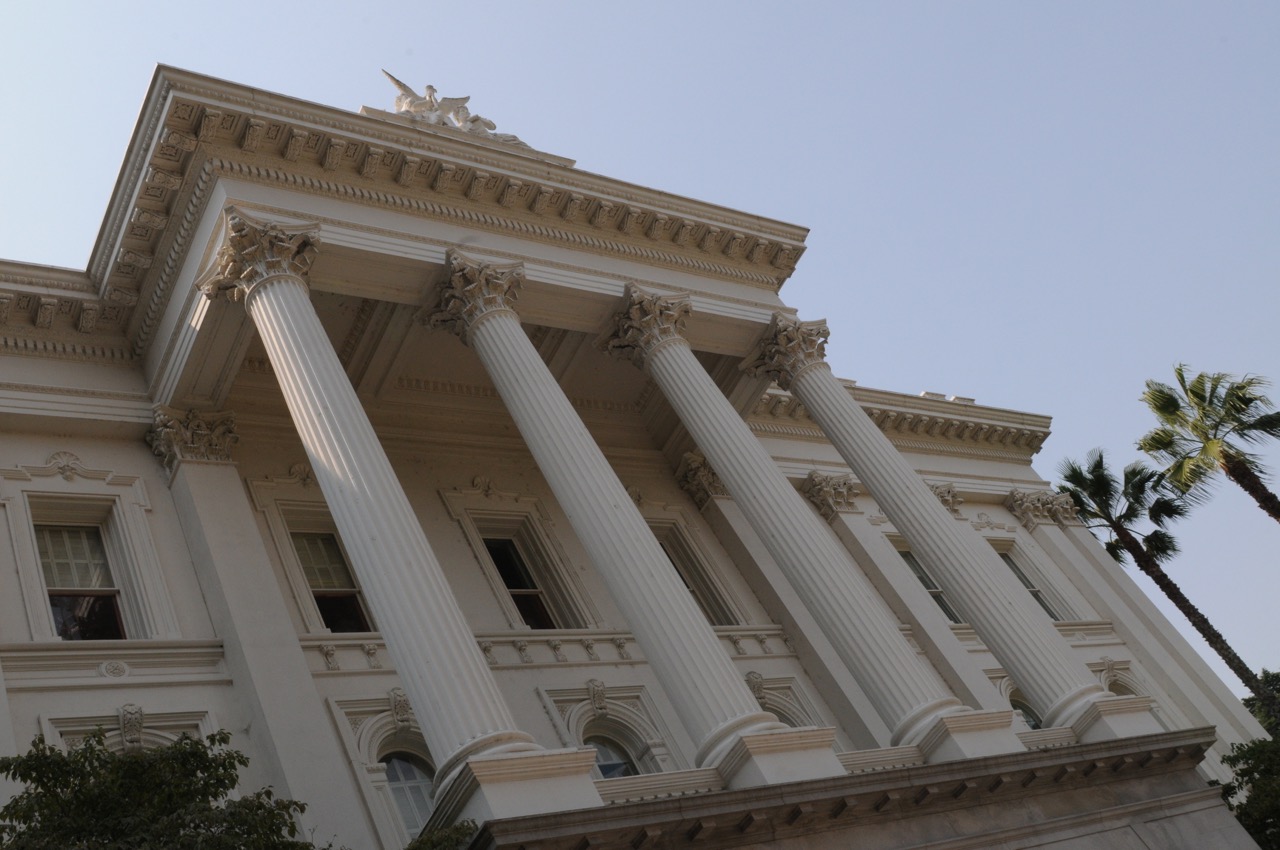
California State Capitol. (Photo: Kevin Sanders for California Globe)
California Courts and the Legislative Open Records Act
The appellate court ruled that the Legislature had complied with LORA
By Chris Micheli, December 19, 2024 2:30 am
The main appellate court case involving the Legislative Open Records Act (LORA) is Zumbrun Law Firm v. California Legislature (2008) 165 Cal.App.4th 1603, review denied. In that case, according to the courts, the Legislature’s response to a LORA record request satisfied the statutory requirement that the Legislature justify in writing the withholding of exempt records where the Legislature’s response stated that any additional responsive documents in its possession fell within the statutory exemptions and stated that examples of such exemptions were “preliminary draft, notes or legislative memoranda,” “correspondence of and to individual members of the Legislature and their staff,” and “records the disclosure of which is exempted or prohibited”. Unlike an evidentiary privilege, an exemption from LORA is not waived when some documents are disclosed.
In this case, “the plaintiff, the Zumbrun Law Firm, brought this action as a taxpayer against defendants California Legislature, its Committees on Rules and others, seeking declaratory and injunctive relief, claiming that a contract for the Capitol Park Safety and Security Improvements Project (Capitol Project), entered into by the Committees on Rules of the Legislature to improve security measures at the Capitol by controlling access to the State Capitol building and grounds, violated the separation of powers doctrine of the state Constitution and unlawfully restricted competitive bidding under the State Contract Act (Pub. Contract Code, § 10100 et seq.) by requiring an all-union work force. Plaintiff also sought, but was denied in part, records relating to the contract under the Legislative Open Records Act (LORA). (Gov.Code, § 9070 et seq.) The trial court concluded the contract did not violate the separation of powers or the State Contract Act. It also concluded that the denial of discovery of certain records did not violate LORA. We agree.
“On December 5, 2005, plaintiff made a request pursuant to LORA for certain writings, including e-mail communications. The request was sent to the Legislature, its Rules Committees, and individual members of the Rules Committees. The requests sought documents related generally to the administration of public contracts for construction projects involving the State Capitol, and specifically to the requirement in the Capitol Project contract that the work be performed by union only contractors and subcontractors.
“The Senate, Assembly, and Joint Committees on Rules responded on behalf of all recipients of the request, pursuant to section 9074, which states that the appropriate Committee on Rules is deemed to have custody of all legislative records and is solely responsible for making them available for inspection. The identical responses related that LORA provides a number of exemptions from disclosure, specifically for: (1) preliminary drafts, notes, or legislative memoranda; (2) correspondence of and to individual members of the Legislature and their staff; and (3) records that are exempted or prohibited from disclosure pursuant to provisions of federal or state law, including evidentiary privileges.”
The court went on to explain the development of the LORA statute. “LORA was enacted in 1975. (Stats.1975, ch. 1246, § 1.) It generally provides for the open access of ‘information concerning the conduct of the people’s business by the Legislature․’ (§ 9070.) LORA also specifies several categories of records that are exempt from disclosure, in particular, “[c]orrespondence of and to individual Members of the Legislature and their staff,” and “[r]ecords the disclosure of which is exempted or prohibited pursuant to provisions of federal or state law, including, but not limited to, provisions of the Evidence Code relating to privilege.” (§ 9075, subds. (h) & (i).) As is relevant here, the language of section 9075, subdivisions (h) and (i) has remained unchanged since LORA was enacted in 1975.”
In addition, the appeals court described the interaction between LORA and Prop. 59. “In 2004, the voters approved Proposition 59, which added subdivision (b) to section 3 of article I of the Constitution. Like LORA, it provided generally for the open access to ‘information concerning the conduct of the people’s business․’ Unlike LORA, it also provided for access to “the meetings of public bodies” as well as the writings of public officials and agencies. (Ibid.)”
The appellate court explained, “Proposition 59 expressly does not change or repeal any exemption to disclosure provided by article IV, section 7 of the Constitution, by state law, or by legislative rules adopted in furtherance of state law or article IV, section 7. (Art. I, § 3, subd. (b)(6).) The exemptions specified in LORA are state law exemptions. (See § 9075, subds. (h), (i).) The mere coupling of these exemptions with those in a particular constitutional provision does not create an ambiguity.
“Proposition 59 pertains to the right of access to both government documents and “meetings of public bodies․” (Art. I, § 3, subd. (b)(1).) The exception contained in article IV, section 7 refers specifically to the ‘proceedings’ of the Legislature, and allows ‘closed sessions’ for specified purposes. (Art. IV, § 7, subd. (c)(1).) LORA, on the other hand, applies not to the proceedings of the Legislature, but to the disclosure of its records. (See § 9070 et seq.) Thus, the specifically enumerated exceptions in Proposition 59 are qualitatively different, one applying to proceedings (art. IV, § 7), one applying to documents (state law), and one applying to both (legislative rules). Because they are different, it cannot be said that the electorate intended one example (art. IV, § 7) to restrict the other examples (state law and legislative rules). For this reason, we also reject plaintiff’s claim that the provisions of Proposition 59 conflict with the terms of LORA.
“Plaintiff also argues that the exemptions set forth in LORA and claimed by defendants conflict with the ‘sunshine’ policies of LORA and Proposition 59, and therefore violate the public’s right of access. However, neither the language of Proposition 59, nor the exemption provisions under LORA are ambiguous provisions in need of interpretation through the vehicle of the statute’s public policy. Proposition 59 expressly did not repeal, nullify, supersede, or modify the exemptions set forth in LORA. (Art. I, § 3, subd. (b)(6).) LORA, in turn, expressly exempts from disclosure ‘correspondence of and to individual Members of the Legislature and their staff․’ (§ 9075, subd. (h).)A public policy argument serves to resolve the ambiguities of a statute, but it does not alone stand superior to the express terms of the statute. (Garcia v. County of Sacramento (2002) 103 Cal.App.4th 67, 75)”
In addition, the appellate court ruled that the Legislature had complied with LORA. “Plaintiff argues defendants’ response to the records request did not comply with LORA’s requirements that if any records were exempt from inspection the defendant ‘justify in writing the withholding of such record by demonstrating that the record in question is exempt under the express provisions of this article․’ (§ 9074.) Plaintiff also points to documents that were disclosed during the course of the litigation, but not disclosed in response to the initial LORA request, and claims these documents prove defendants did not comply with LORA. However, the later-produced documents were not responsive to plaintiff’s initial request.”
Finally, the appeals court ruled that the Legislature did not waive the right to withhold documents. “Plaintiff argues that defendants have waived the right to withhold documents on two grounds: (1) by failing to comply with LORA by not describing the nature of the records withheld, and (2) by General Services’ disclosure of some documents. With respect to the first ground, we have determined that defendants’ response to the document request did not violate LORA; therefore, there has been no violation that would constitute a waiver.
“With regard to plaintiff’s second argument, we conclude that the statutory exemptions from disclosure are not the equivalent of evidentiary privileges, which may be waived by disclosure. Privilege, as defined by the Evidence Code, relates to proceedings in which testimony may be compelled by law to be given. (Evid. Code, § 901.) Plaintiff cites no authority to support its claim that an exemption to LORA’s open records policy is to be treated as if it were an evidentiary privilege subject to waiver if disclosed, and we are aware of no such authority.
LORA contains its own enforcement mechanism.”
This case is interesting because it dealt with several different exemptions under LORA, as well as the interaction of LORA with the state’s Public Records Act and Prop. 59 concerning public access to meetings and writing of public officials.
- Fish and Game Management - February 5, 2026
- Support Payments to County Officers - February 4, 2026
- Native Plant Protection - February 4, 2026




